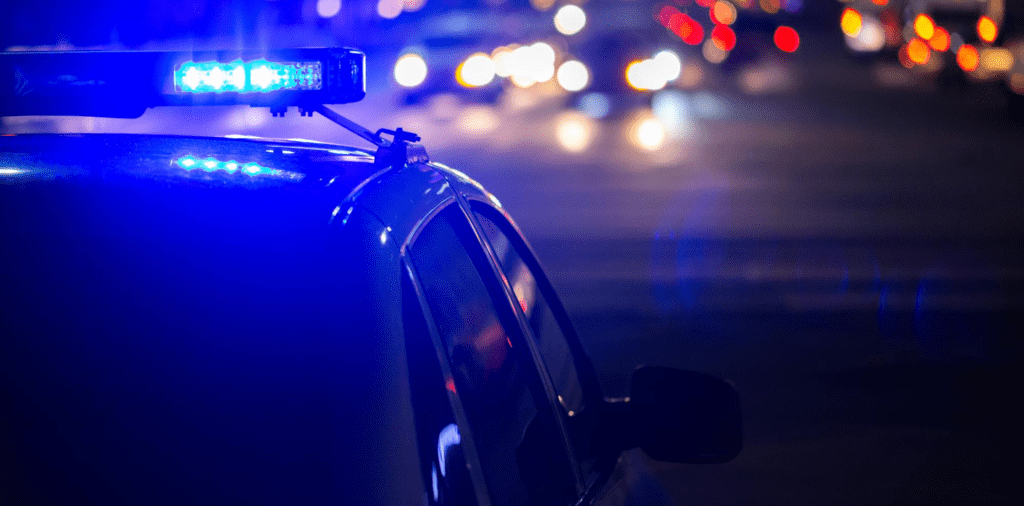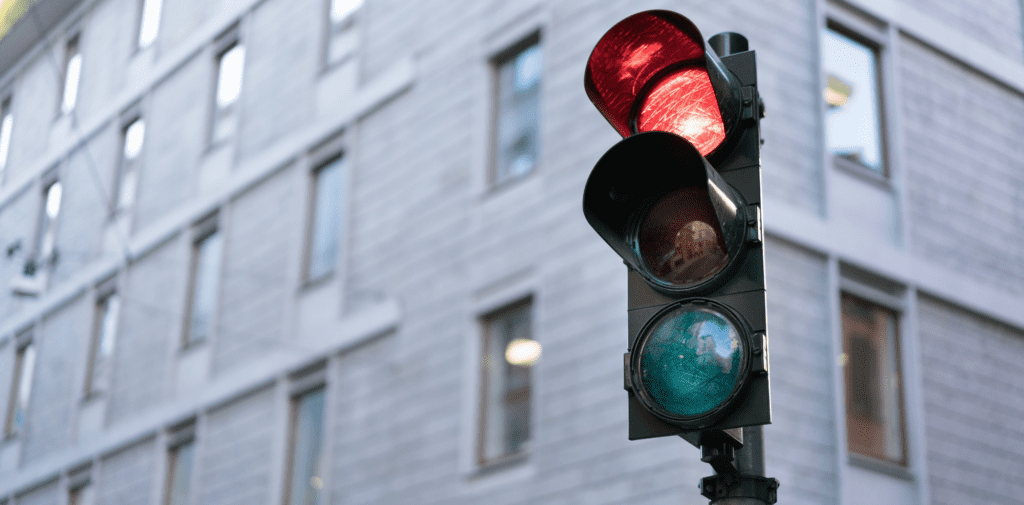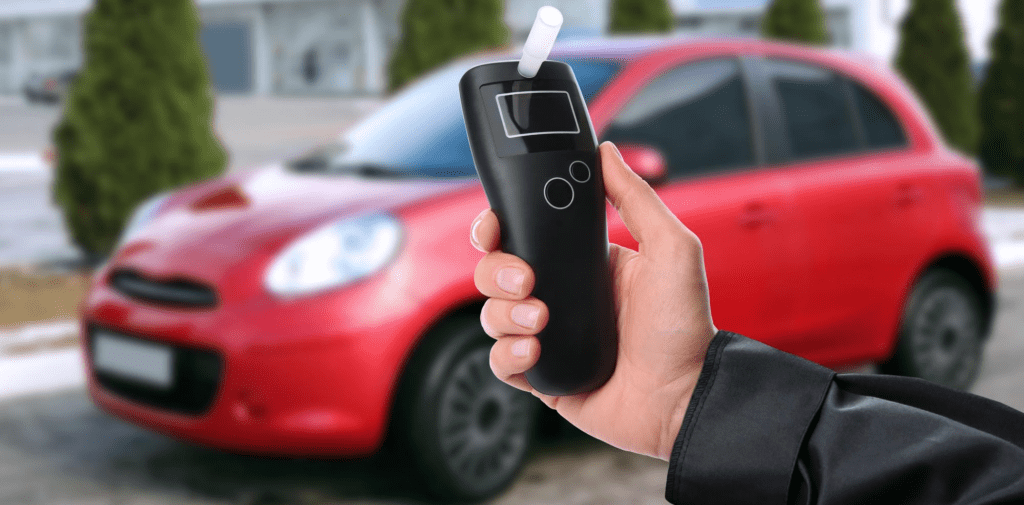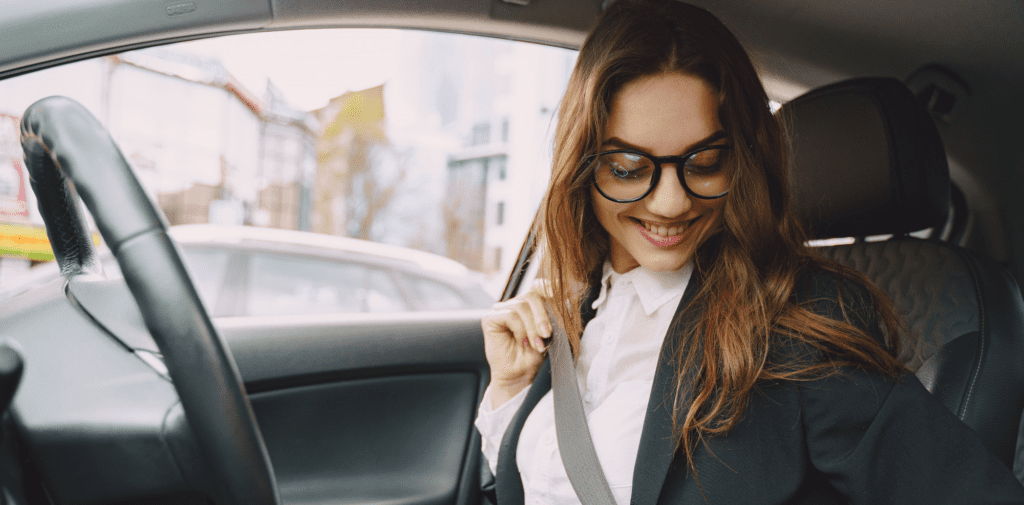
Whether you’re a novice driver or a seasoned road veteran, the unexpected sight of police lights flashing in your rearview mirror can be intimidating.
- When are the police allowed to stop drivers?
- What to do when you’re asked to pull over by the police
- What might happen once you’ve been stopped?
- How do I prevent being pulled over by the police?
- Frequently asked questions
Many drivers, regardless of their experience, may never have been pulled over before. As a result, the experience can induce anxiety and lead to avoidable errors.
Being well-informed about the process is crucial to ensuring your safety and the safety of the police officer. Here’s what you should know.
When are the police allowed to stop drivers?
Many drivers, at some point in their driving careers, may experience the unexpected event of being pulled over by the police.
While it’s clear in cases of evident infractions, like speeding or running a red light, there are times when the reason might be less apparent. The question arises: under what circumstances are the police authorised to stop drivers?

According to GOV.UK, the police have broad authority. They can arrest individuals “anywhere and at any time” whether you’re walking on the street, at home, at work, or behind the wheel. Here’s a breakdown of instances where the police might pull you over while driving:
-
Routine Traffic Violations: This includes obvious violations like speeding, not wearing a seat belt, using a mobile phone while driving, or not adhering to traffic signs.
-
Vehicle Appearance or Performance: If your vehicle seems to be in a condition that might endanger others—like a broken tail light, excessive smoke, or a noisy exhaust—you might be pulled over.
-
Random Checks: Sometimes, the police may stop you for no obvious reason but as part of random checks to ensure road safety standards are maintained.
-
Document Verification: The police can stop you to check your driving license, insurance, and MOT certificate. If you don’t have these on hand, you typically have a week to present them at your local police station. Failure to do so within the given timeframe is an offence.
-
Suspected Impairment: If the police suspect you might be driving under the influence of alcohol or drugs, they can stop you and request a breath test or even a field sobriety test.
-
Vehicle Seizure: In more severe cases, if the police believe you are driving without valid insurance or a current MOT, they can seize your vehicle on the spot.
-
On-the-Spot Penalties: For minor motoring offences, the police can issue you with a fixed penalty notice right then and there.
Remember that the primary goal of these stops is ensuring public safety. Cooperating with the police, providing the necessary documents, and understanding your rights will lead to a smoother interaction.
If unsure why you’ve been stopped, it’s perfectly acceptable to politely inquire about the reason.
What to do when you’re asked to pull over by the police
The sight of flashing blue lights in your rearview mirror can be daunting, but knowing how to act can make the situation less stressful.
Typically, if a police car wants you to pull over, they’ll activate their blue lights, potentially coupled with a siren. Their left-hand indicator will also flash, signalling for you to pull over.
Pull over when it’s safe to do so
-
Evaluate the Road: As soon as you notice the police’s indication, begin looking for a safe place to pull over. Abrupt stops can be risky, especially on highways or fast-moving roads. Wait for a stretch where you can safely pull over without obstructing traffic.
-
Signal Your Intent: If it takes you a moment to find a safe stopping point, signal your intent to the police. This might involve activating your hazard lights briefly to acknowledge their request.
-
Park Safely: Once you’ve found a suitable spot, perform all-around checks, use your indicators, and gently come to a stop.
Stay calm
-
Stay Inside: After pulling over, remain in your vehicle. The police will approach; there’s no need to step out unless instructed.
-
Be Ready for Interaction: Rolling down your window slightly will facilitate communication. In low-light conditions, switch on your interior lights to ensure visibility.
-
Stay Transparent: For the officer’s safety, keep your hands in plain sight, preferably on the steering wheel.
Be polite
Remember, the goal is a smooth interaction. Respond respectfully and promptly to any requests. Sharing requested documents like your driving licence, proof of insurance or MOT documents is obligatory; non-compliance can lead to further complications.
What if I’m pulled over by an unmarked car?
Unmarked cars can pull you over, but the officer must be in uniform to do so legally. If you’re uncertain:
-
Seek a Safe Area: If possible, stop at a nearby police station or a well-lit, populated area.
-
Stay Secure: Lock your doors and windows until you’ve verified the officer’s identity.
-
Ask for Identification: Requesting the officer’s warrant card is within your rights. Genuine officers will likely understand your concerns.
Resuming your journey
Once you have finished with the Police officer, and any necessary warnings or charges have been issued, you can be on your way.
-
Regain Your Composure: Take a few deep breaths to calm any nerves before proceeding.
-
Safety Checks: Before merging back into traffic, ensure you’ve checked all blind spots and observations knowing that it’s safe to proceed.
Remember, while being pulled over might disrupt your journey, it’s a routine procedure for law enforcement. Being informed and prepared is key to navigating the situation with ease.
What might happen once you’ve been stopped?
Being pulled over by the police can be nerve-wracking, and the aftermath can vary based on several factors. Here’s a more detailed breakdown of possible outcomes:
Document Verification
Upon being stopped, the police will likely request your driving licence, insurance, and MOT documents. Always have them handy, or remember you have a week’s grace to present them at a local police station.
Breath and Drug Test
-
Alcohol: If the police suspect alcohol consumption, a breath test can be administered. Immediate results will dictate your next steps. A passed test sends you on your way, while a failed test leads to a more accurate one at the police station. Failure there results in charges.

-
Drugs: Similar to alcohol, if drug use is suspected, a saliva or sweat test can be done. Physical tests like walking in a straight line or other activities can also be conducted. Failing any of these leads to arrest.
If arrested for either, your vehicle will remain at the stop site until someone retrieves it or it’s towed.
Minor Motoring Offences
There’s a multitude of minor offences that can result in a fixed penalty notice, including but not limited to:
- Driving dangerously or without consideration.
- Tailgating.
- Ignoring seatbelt regulations.
- Distracted driving (e.g., using a mobile phone).
Penalties can range from fines up to £200 to points on your licence. Accumulating 12 points within 3 years means disqualification, while new drivers can have their licence revoked upon reaching 6 points within their first 2 years.
Though penalties are standardised, police have discretion. They can issue a warning, recommend training, or decide on immediate charges based on the situation’s severity. Speeding drivers sometimes get an invite to a speed awareness course.
You have the right to contest a fixed penalty but be prepared to defend your case in court. Unsuccessful challenges can lead to higher fines.
Vehicle Faults
Routine stops can lead to vehicle inspections. If an officer notices defects like broken tail lights or worn tyres, they can issue a ‘vehicle defect rectification notice‘. Post-notice, you have 14 days to address the issue and provide proof, like a mechanic’s receipt.
Vehicle Seizure
Extreme circumstances or blatant law violations can result in vehicle seizure. Reasons include:
- Driving that causes alarm or distress to others.
- Hazardous or illegal parking.
- Driving without a valid licence or insurance.
Retrieving a seized vehicle isn’t just a matter of inconvenience—it can be costly. Alongside a release fee of up to £200, storage fees accumulate at £20/day.
Being stopped by the police can range from a simple document check to more serious consequences.
Familiarising yourself with potential outcomes and always adhering to driving regulations minimises the likelihood of unfavourable results. Safe and responsible driving benefits not only you but everyone on the road.
How do I prevent being pulled over by the police?
While there’s no guaranteed way to evade a pull-over, some preventative steps can drastically reduce your odds of seeing those flashing lights behind you.

Here are some steps to consider:
Maintain your car
- Regular Maintenance: Make it a habit to schedule routine check-ups for your vehicle at a certified garage. This way, potential issues are caught before they become apparent to the police.
- Weekly Checks: Dedicate some time each week to inspect your vehicle for visible issues. This includes checking lights, indicators, and brake lights. Having a friend or family member assist you can make this process quicker and more thorough.
Follow the rules
- Speed: Always observe the speed limits. Remember, they’re there not just as legal limits but as safety recommendations.
- Signage: Look out for and adhere to road signs, be it for parking, lane restrictions, or directional guidance.
- Stay Predictable: Avoid erratic driving. Sudden lane changes or unpredictable moves might get you noticed for all the wrong reasons.
- Education: Regularly refresh your knowledge. Online resources and courses can keep you updated on any recent changes to road laws.
Leave your car behind
- Plan Ahead: If you know you’ll be indulging in alcohol, plan alternative transport options. Taxis, rideshares, or designated drivers can be lifesavers.
- Use Public Transport: Especially in metropolitan areas, consider buses, trams, or trains to avoid the potential of impaired driving.
Avoid distractions
- Mobile Phones: Besides being illegal, using your phone while driving is a major hazard. If your car doesn’t have hands-free capability, invest in a Bluetooth kit.
- Food & Beverages: Refrain from eating or drinking while driving. Spills or managing containers can distract you.
- Entertainment: Set up your radio or playlist before hitting the road, so there’s no need to fiddle with controls while driving.
Check you’re up to speed
- Documentation: Regularly check the expiry dates on your driving licence, MOT, and insurance. An organiser or digital reminders can ensure you’re always updated.
- Licence Details: Ensure personal details like your address are accurate on your driving licence. Incorrect details can be a reason for a pull-over.
- Insurance Updates: Change in circumstances, like a new job or home, can affect your insurance. Ensure your provider has up-to-date information.
Drive defensively
- Anticipate and React: Stay alert and anticipate the actions of other drivers. This reduces the chances of sudden braking or lane switching.
- Maintain Safe Distance: Tailgating can draw unwanted attention. Always keep a safe distance from the vehicle in front of you.
By being proactive, vigilant, and informed, you significantly decrease the likelihood of being pulled over. Always prioritise safety and legality when on the road.
Frequently asked questions
Absolutely not. Even if you believe you’ve abided by all rules, it’s crucial to respect the law and its enforcers. When signalled by the police to stop, ensure you pull over safely and promptly.
Ignoring them could lead to them suspecting evasion, and this could escalate to an arrest when they eventually intercept you.
Generally, no. If you possess a documented medical or mental condition that impedes you from participating in the test, you can potentially decline, but it’s essential to communicate this to the police officer.
However, if there’s no valid reason preventing you, turning down the breathalyser could result in immediate arrest.
Safety first. Continue driving at a moderate pace, aiming for a well-lit and populated area, such as a petrol station or a busy car park.
While doing so, use your indicators to acknowledge their signal, showing you’re not attempting to evade them. Once you’ve stopped, observe the individual exiting the car.
Should they be in uniform but you remain uncertain, politely request their warrant card for verification.
If they aren’t in uniform, it’s wise to stay inside your vehicle, lock your doors, and immediately contact the local police, as they could be posing as an officer.
Stay calm. Generally, you’re granted a 7-day grace period to present the specified documents at a local police station. However, it’s crucial to comply within this timeframe.
Neglecting to showcase these papers within the allotted time can lead to legal consequences, potentially resulting in court proceedings or fines.
Effectively, yes. When you present your driving licence to the police upon request, it already contains your address. The police have the authority to ask for your licence, and not complying could lead to potential consequences, including arrest.
A fixed penalty notice is a formal notice issued by the police when you commit certain minor traffic violations, like speeding.
Instead of facing a court appearance, you’re given the option to pay a set amount, such as £100 for a speeding violation.
Payment isn’t immediate; you typically have a 28-day window to settle the fine or opt for a hearing. Should you neglect to address it within this timeframe, the penalty can escalate.
The threshold for penalty points varies based on the duration you’ve held your licence. For new drivers who’ve had their licence for less than two years, accruing 6 or more points will lead to revocation of the licence.
For those who’ve held their licence longer, accumulating 12 or more points within a three-year span may result in disqualification.
Yes, not being aware of your insurance status isn’t a valid excuse in the eyes of the law.
Every driver is obligated to ensure they have at least third-party insurance coverage. If you’re uncertain about your insurance situation, it’s essential to check.
Failing to have proper insurance can result in penalty points, a significant fine, or even disqualification from driving.


